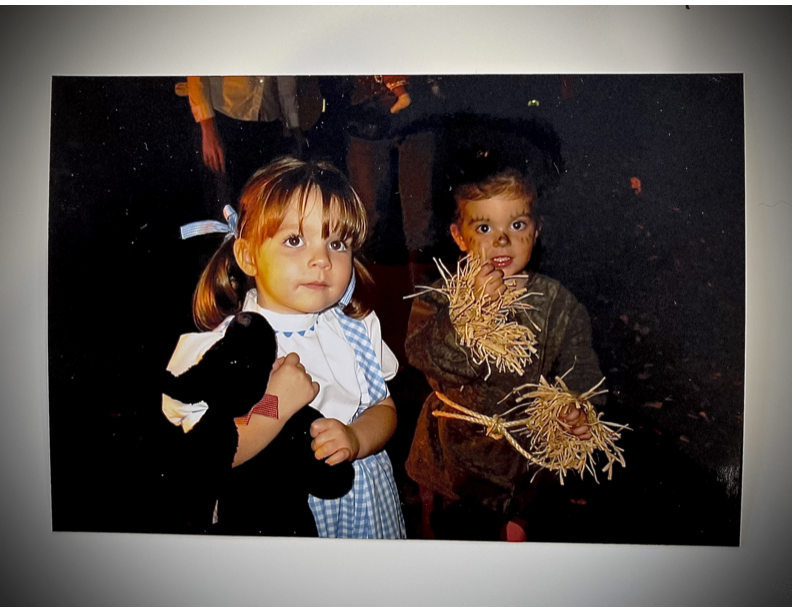In Anatomy of the Soul, Dr. Thompson says, “our experiences are inextricably woven together with our neural firing patterns, and therefore, we cannot separate the two” (pg. 31). Pain from our past and anxieties about our future are constantly weaving this tapestry of our present. The first post of this three part series addressed our hearts. The hope of living out of our hearts hinges on the various threads comprising our thought patterns.
Many verses in the Bible talk about the mind: having the mind of Christ, how God renews our minds. If we are instructed by God’s word to activate our neurobiological selves then we must begin by understanding how we process information. A mirage is something that presents itself as real but proves to be false upon closer examination. In the moment, it gives us hope. Just as a mirage can be seen in a photograph, our perspective even when inaccurate colors our reality.
The Poppy Effect
Any combination of broken realities and sin will spin a story of shame. It is fairly easy to perceive feelings of disgust when hurt by the actions of others or faced with our own guilt. However, there is a third source of shame that is much more ambiguous, the false shame narrative we create in our minds. It whispers “I am a failure”, “undeserving of love”, “I do not belong”. When shame is carried deep inside and left unacknowledged it festers and becomes toxic.
Brene’ Brown’s work has resulted in a great deal of scientific data about shame. One conclusion she has found in her research is how the antagonist of shame is empathy. Empathy is our ability to understand and share the emotions of another. Therefore, by its very definition, we cannot be empathetic toward ourselves. We need others to bear witness to our shame so they can help put words to its whispers. We glean from others the weapon of truth to combat the lies of our shame. This allows us to change our perspective and believe what is true.
Freud provided further understanding of self when his studies revealed that once we reach adulthood, we are only reenacting. There are no new experiences. As discussed in the previous post, we often attach a past emotion to a current experience. It is in processing and understanding that emotion that allows us information by which to renew our minds. However, we have to have patience and give ourselves a helping dose of grace as we strive for self awareness. Because we are not always able to access all that we know.
The Kind Wizard
The brain in its complexity proves the existence of the almighty creator. Our emotions act as a smoke signal or an alarm bell, telling us there is something that needs our attention. Our brain is always working to receive the data our senses are sending and works to decipher if we are safe or if we need to take action. When we are in distress due to relational conflict, a painful memory, or a sense of shame, a healthy brain receives the information and regulates the emotion.
An unhealthy or traumatized brain may either go into overdrive or shut down. This complex working of the brain as it develops and then carries us through life reflects the kindness of a loving Father. God designed our brains to hide information from us that we aren’t able to handle in a specific moment due to age of development or life circumstance. Sometimes these realities may lay dormant for years or decades. And then, in His incredible love for us, He brings to the surface what we were unable to manage before.
When our emotion overwhelms our window of tolerance a part of our brain is activated. This kicks our body into a mode of self protection. In these moments it is common for the part of our brain that verbalizes our thoughts to become paralyzed. Our brain is literally unable to form rational thoughts or the words to express what we feel. This reminder of our finitude is also God’s kindness to His creation. We are forced to acknowledge our need for His peace, and the comfort he provides through others. Putting words to an internal experience can be so painful it sometimes seems easier to manage our pain ourselves. We are tempted to isolate and settle into the lies our past threatens to feed us.
Our Very Own Ruby Slippers
We need those who love us to stay close. We need their ministry of presence, helping us feel safe, calming our minds so we can regulate our emotions. Then we need them to listen as we share what we know and what we feel. Having trusted fellow believers in our community to hear our most unflattering truth or share in our devastation, provides us with a picture of who Christ is for us. It reminds us that Christ carried our shame to the cross. Curt Thompson says, “I believe our lives will be abundant, joyful and peaceful only to the degree that we are engaged, known, and understood by one another” (Anatomy of the Soul).
Our brain is truly remarkable. Understanding how our minds may need a change of perspective is vital for our peace. Thankfully, God is in the business of renewing our minds. This tangible experience of God’s kindness often demands suffering. The good news, suffering leads to sanctification. The bad news, sanctification takes courage.
Thompson, C. (2010). Anatomy of the soul: Surprising connections between neuroscience and spiritual practices that can transform your life and relationships. Tyndale House Publishers, Inc.
Thompson, C. (2021). The soul of desire: Discovering the neuroscience of longing, beauty, and community. InterVarsity Press.
Van der Kolk, B. (2014). The body keeps the score: Brain, mind, and body in the healing of trauma. Penguin Books


Recent Comments